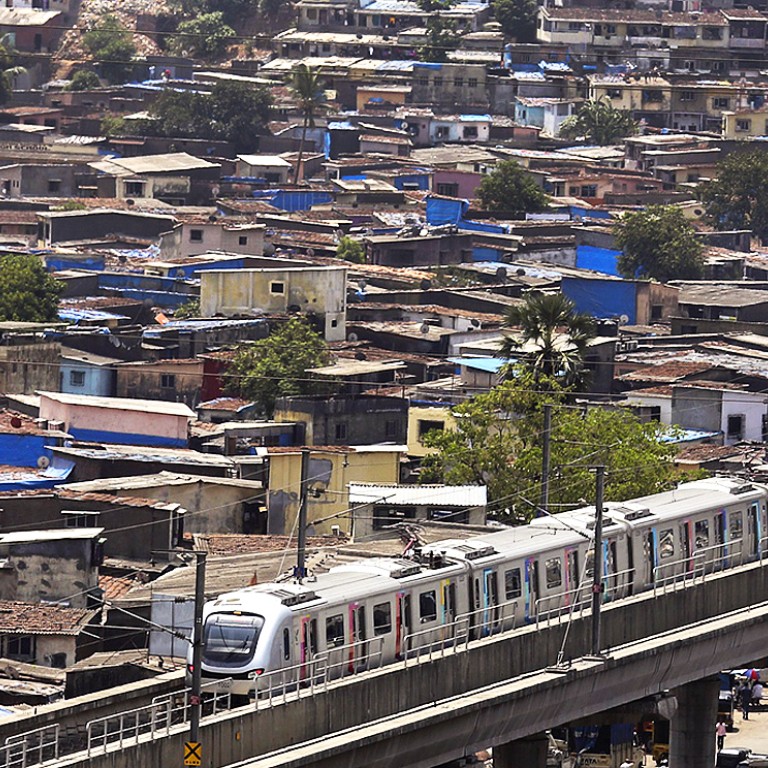
China builds influence, one railway at a time
China is partnering in ambitious projects across Asia and Latin America, hoping to boost its image and secure access to energy and other exports
President Xi Jinping's trip to India and Sri Lanka later this month gives China a chance to not only expand its influence in South Asia, but also further boost exports of its railway technology.

Liu Youfa, the consul in Mumbai, told Indian media earlier that Chinese companies were hoping to play a part in high-speed rail projects on the subcontinent.
A 22-member Chinese delegation held talks with officials from Indian Railways in Mumbai in July.
Chinese companies are also making joint bids for five high-speed rail projects, but they are competing with Japan, which has promised to provide capital and technical support.
The signing of railway cooperation deals has become a key feature of Xi's overseas trips. When he visited Latin America in July, Beijing suggested China, Peru and Brazil form a working group to build a line from Peru's Pacific coast to Brazil's Atlantic shore.
These projects allow Beijing to offer financial or technical support in return for securing supplies of energy and other commodities, while improving its image abroad, observers say.
"This is part of the broader effort by China to expand infrastructure development in Latin America," said Matt Ferchen, a resident scholar at the Carnegie-Tsinghua Centre for Global Policy.
Other projects in the region with Chinese commitment - which have yet to be implemented - include a proposal with Honduras to connect Amapala, on the Pacific coast, and the Caribbean port city of Castilla.
Beijing has signed similar deals with Thailand, Myanmar, and Kenya.
Zhao Jian, a professor at the Beijing Jiaotong University School of Economics and Management, said China hoped to export its railway specifications, such as the width of track.
It also wanted to show it could improve people's lives by creating jobs through infrastructure schemes.
"But it is costly and, in the end, China may not gain financial rewards in return. Foreign governments may not be able to afford such major projects," Zhao said.
The financial losses can be offset. The Peru-to-Brazil link would open an alternative export route to the Panama Canal, where transport costs have tripled over the past five years.
Wang Mengshu, a rail expert and a member of the Chinese Academy of Engineering, said China often used railway construction to trade for energy and natural resources.
"China is urgently trying to increase its oil reserve capacity," Wang said.
"Usually the financing agreements of these overseas railway projects call for China to give capital support in return for energy and resources."
However, many of these huge projects can be difficult to complete. Last month Thailand's military junta approved a US$23 billion deal for two high-speed rail links with China to be built by 2021 - part of Beijing's effort to link Kunming in the southwest with Singapore.
But Myanmar's railway ministry director said the 1,215km link between Myanmar's Rakhine state and Kunming was cancelled because of strong public objections over environmental and social concerns.
In Latin America, plans to seek Chinese help for a Pacific rail line were announced by Colombian President Juan Manuel Santos in 2011, but no progress has been made.
"For now, I will just put that [Pacific rail project] in the category of a long list of infrastructure projects that China is discussing with others in the region," Ferchen said.
Margaret Myers, director of the China and Latin America programme at the Inter-American Dialogue think tank, said it remained to be seen how far such commitments could go.
"It is certainly not uncommon for there to be discussion about large projects and then nothing to happen. It is really hard to tell whether there is just not enough commitment on either side," Myers said.
Ferchen said China needed to deepen its engagement with other nations to ensure such projects were smoothly implemented, but Chinese policymakers did not want Beijing to appear to be meddling in the domestic affairs of its partners.

